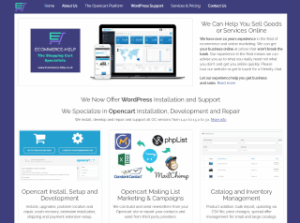All Wireless Companies Warn Shareholders, Not Consumers: 5G Rated “High Risk” By Insurance Companies
Wed 11:42 am +00:00, 25 May 2022
I ran across a video this past week in which a man was presenting that many 5g companies are warning their stockholders about the “high risk” of 5G technology that insurance companies have referenced, but they are not telling consumers. It’s ironic that many of the shareholders would also be consumers. However, while the roll out of 5G went on full steam ahead during the CONvid-1984 lockdowns, the warnings from scientists and doctors from around the world have fallen on many deaf ears.
Take a listen to this gentlemen describe a couple of these companies and the warnings that were issued.
Two companies were mentioned in the video, Swiss Re Group and Crown Castle.
Environmental Health Trust reported on Swiss Re classifying 5G as “high” impact emerging risk in a white paper.
5G is rated as a “high impact” emerging risk affecting property and casualty claims in more than 3 years.
“As the biological effects of EMF in general and 5G in particular are still being debated, potential claims for health impairments may come with a long latency.”
The text on page 29 of 2019 Swiss Re Report is as follows.
- Cyber exposures are significantly increased with 5G, as attacks become faster and higher in volume. This increases the challenge of defence.
- Growing concerns of the health implications of 5G may lead to political friction and delay of implementation, and to liability claims. The introductions of 3G and 4G faced similar challenges.
- Information security and national sovereignty concerns might delay implementation of 5G further, increasing uncertainty for planning authorities, investors, tech companies and insurers.
- Heated international dispute over 5G contractors and potential for espionage or sabotage could affect international cooperation, and impact financial markets negatively.
- As the biological effects of EMF in general and 5G in particular are still being debated, potential claims for health impairments may come with a long latency.”
Read the 2019 Swiss Re Report
They also went on to provide a report regarding cell phone manufacturers and providers, as well as smart reader companies know about this health danger and, apparently, they have lied to their customers. The report states in part:
Corporate Company Investor Warnings contained in Annual Reports filed on Form 10-K (or Form 20-F or 40-F for foreign companies) with the and Securities and Exchange Commission (SEC).
Cell phone manufacturers and providers of their infrastructure are aware that the radiation from their products could be risky and warn their shareholders. See below excerpts from statements in their annual reports that indicate these companies are informing their shareholders that they may incur significant financial losses related to electromagnetic fields.
Insurance companies will not insure these companies for harm from the radiation from their products and networks. As Crown Castle states, “We currently do not maintain any significant insurance with respect to these matters.”
Some of the examples include:
AT&T Inc.
10-K filing for fiscal year ending 12/31/2019
“Unfavorable litigation or governmental investigation results could require us to pay significant amounts or lead to onerous operating procedures.
We are subject to a number of lawsuits both in the United States and in foreign countries, including, at any particular time, claims relating to antitrust; patent infringement; wage and hour; personal injury; customer privacy violations; regulatory proceedings; and selling and collection practices. We also spend substantial resources complying with various government standards, which may entail related investigations and litigation. In the wireless area, we also face current and potential litigation relating to alleged adverse health effects on customers or employees who use such technologies including, for example, wireless devices. We may incur significant expenses defending such suits or government charges and may be required to pay amounts or otherwise change our operations in ways that could materially adversely affect our operations or financial results.”
Under the section “CAUTIONARY LANGUAGE CONCERNING FORWARD-LOOKING STATEMENTS” it states:
- “The final outcome of FCC and other federal, state or foreign government agency proceedings (including judicial review, if any, of such proceedings) and legislative efforts involving issues that are important to our business, including, without limitation, pending Notices of Apparent Liability; the transition from legacy technologies to IP-based infrastructure, including the withdrawal of legacy TDM-based services; universal service; broadband deployment; wireless equipment siting regulations and, in particular, siting for 5G service; E911 services; competition policy; privacy; net neutrality; multichannel video programming distributor services and equipment; content licensing and copyright protection; availability of new spectrum on fair and balanced terms; and wireless and satellite license awards and renewals.”
- “The outcome of pending, threatened or potential litigation (which includes arbitrations), including, without limitation, patent and product safety claims by or against third parties.”
“We are a party to numerous lawsuits, regulatory proceedings and other matters arising in the ordinary course of business. As of the date of this report, we do not believe any pending legal proceedings to which we or our subsidiaries are subject are required to be disclosed as material legal proceedings pursuant to this item.
We are subject from time to time to judicial and administrative proceedings brought by various governmental authorities under federal, state or local environmental laws. We are required to discuss below those proceedings in our Forms 10-Q and 10-K, which could result in monetary sanctions (exclusive of interest and costs) of $100,000 or more. However, we do not believe that any currently pending will have a material adverse effect on our results of operations.
Waste Disposal Inquiry Involving DIRECTV. In August 2012, a unit organized by the California Attorney General and the District Attorney for Alameda County, California notified DIRECTV that the unit was examining allegations that DIRECTV had failed to properly manage, store, transport and dispose of Hazardous and Universal Waste in accordance with the California Health & Safety Code. No litigation was filed. In November 2017, DIRECTV settled this matter for an immaterial amount and agreed to continue to abide by processes to comply with California waste regulations already implemented by AT&T affiliates in California for a period of 5 years.”
“Unfavorable litigation or governmental investigation results could require us to pay significant amounts or lead to onerous operating procedures”
“We are subject to a number of lawsuits both in the United States and in foreign countries, including, at any particular time, claims relating to antitrust; patent infringement; wage and hour; personal injury; customer privacy violations; regulatory proceedings; and selling and collection practices. We also spend substantial resources complying with various government standards, which may entail related investigations and litigation. In the wireless area, we also face current and potential litigation relating to alleged adverse health effects on customers or employees who use such technologies including, for example, wireless devices. We may incur significant expenses defending such suits or government charges and may be required to pay amounts or otherwise change our operations in ways that could materially adversely affect our operations or financial results.”[/su_note]
Verizon Communications Inc.
“We are subject to a significant amount of litigation, which could require us to pay significant damages or settlements.
We are subject to a substantial amount of litigation, including, from time to time, shareholder derivative suits, patent infringement lawsuits, antitrust class actions, wage and hour class actions, personal injury claims and lawsuits relating to our advertising, sales, billing and collection practices. In addition, our wireless business also faces personal injury and wrongful death lawsuits relating to alleged health effects of wireless phones or radio frequency transmitters. We may incur significant expenses in defending these lawsuits. In addition, we may be required to pay significant awards or settlements.”
“We are subject to a significant amount of litigation, which could require us to pay significant damages or settlements.
…our wireless business also faces personal injury and consumer class action lawsuits relating to alleged health effects of wireless phones or radio frequency transmitters, and class action lawsuits that challenge marketing practices and disclosures relating to alleged adverse health effects of handheld wireless phones. We may incur significant expenses in defending these lawsuits. In addition, we may be required to pay significant awards or settlements.”
Apple
“The Company’s financial condition and operating results could be adversely impacted by unfavorable results of legal proceedings or government investigations.
The Company is subject to various claims, legal proceedings and government investigations that have arisen in the ordinary course of business and have not yet been fully resolved, and new matters may arise in the future. In addition, agreements entered into by the Company sometimes include indemnification provisions which can subject the Company to costs and damages in the event of a claim against an indemnified third party. The number of claims, legal proceedings and government investigations involving the Company, and the alleged magnitude of such claims, proceedings and government investigations, has generally increased over time and may continue to increase….
While the Company maintains insurance coverage for certain types of claims, such insurance coverage may be insufficient to cover all losses or all types of claims that may arise.”
“Item 3. Legal Proceedings The Company is subject to legal proceedings and claims that have not been fully resolved and that have arisen in the ordinary course of business. The Company’s material legal proceedings are described in Part II, Item 8 of this Form 10-K in the Notes to Consolidated Financial Statements in Note 10, “Commitments and Contingencies” under the heading “Contingencies.””
The Company is subject to complex and changing laws and regulations worldwide, which exposes the Company to potential liabilities, increased costs and other adverse effects on the Company’s business.
The Company’s global operations are subject to complex and changing laws and regulations on subjects including, but not limited to: antitrust; privacy, data security and data localization; consumer protection; advertising, sales, billing and e-commerce; product liability; intellectual property ownership and infringement; digital platforms; Internet, telecommunications, and mobile communications; media, television, film and digital content; availability of third-party software applications and services; labor and employment; anti-corruption; import, export and trade; foreign exchange controls and cash repatriation restrictions; anti– money laundering; foreign ownership and investment; tax; and environmental, health and safety.
Compliance with these laws and regulations may be onerous and expensive, increasing the cost of conducting the Company’s global operations. Changes to laws and regulations can adversely affect the Company’s business by increasing the Company’s costs, limiting the Company’s ability to offer a product or service to customers, requiring changes to the Company’s supply chain and business practices or otherwise making the Company’s products and services less attractive to customers.”
Read about more companies here.
https://sonsoflibertymedia.com/all-wireless-companies-warn-shareholders-not-consumers-5g-rated-high-risk-by-insurance-companies-video/













